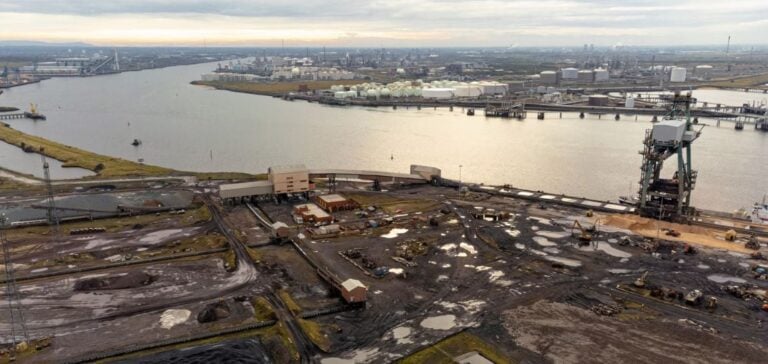BP awards Technip Energies the Front End Engineering Design (FEED) contract for H2Teesside, a project in the north-east of England, to produce 1.2 gigawatts of low-carbon hydrogen.
The project is part of the UK’s strategy to develop 10 GW of low-carbon hydrogen by 2030, helping to reduce industrial emissions.
With a planned capacity to capture two million tonnes of carbon dioxide per year, H2Teesside could absorb the equivalent of the heating emissions from almost one million homes.
The unit is an integral part of the UK’s East Coast Cluster, a set of interconnected emission reduction projects.
The CO2 captured at H2Teesside will be directed into the Northern Endurance Partnership (NEP) CO2 collection network in the North Sea, reinforcing the capture and storage infrastructure already in place.
FEED study and future project development
Technip Energies’ engineering study includes the design of the plant, integrating technological solutions for hydrogen production and carbon capture.
This design phase precedes the final investment decision, scheduled for 2025.
If approved, Technip Energies could be in charge of the engineering, procurement, construction and commissioning (EPCC) of the plant.
This project is part of BP’s wider strategy to develop low-carbon energy solutions, integrating hydrogen as a key vector for industry and power generation. The combination of hydrogen and carbon capture technologies is seen as key to meeting the UK’s 2050 emissions reduction targets.
Economic impact for the Teesside region
H2Teesside is more than just a technical project; it is also an economic driver for the region.
The development of this infrastructure could boost local employment, both during the construction and operation phases, and attract further investment in the low-carbon hydrogen sector.
BP is positioning Teesside as a strategic hub for hydrogen, creating opportunities for local businesses and strengthening the UK’s role in the international energy market.
By capitalizing on projects like H2Teesside, BP aims to develop an integrated network of hydrogen and carbon capture infrastructures.
Challenges for the low-carbon hydrogen market
The H2Teesside project is part of a growing trend among energy majors to explore low-carbon options.
Hydrogen, in particular, is increasingly seen as a viable alternative for the energy transition, with potential applications in the industrial, heavy transport and power generation sectors.
Demand for carbon capture infrastructure and hydrogen projects could therefore continue to grow, especially in countries like the UK that are looking to reduce their carbon footprint while sustaining economic growth.
The collaboration between Technip Energies and BP on H2Teesside is an example of these developments.
Technip Energies’ experience in engineering and managing large-scale projects, combined with BP’s commitment to low-carbon solutions, plays a strategic role in the evolution of the energy sector.






















